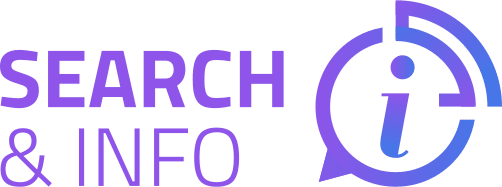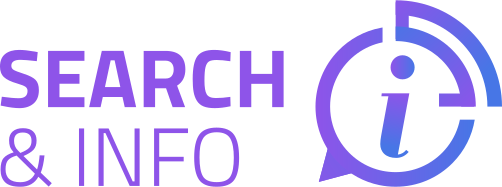Financial wellness is a cornerstone for achieving a secure and prosperous future. This article offers practical advice on budgeting, saving, and investing to help you navigate your personal financial journey effectively.
Creating a Realistic Budget
Creating a budget is the first step towards financial wellness. A well-structured budget helps you understand where your money is going and ensures you live within your means. Start by listing all your sources of income, including your salary, bonuses, and any other revenue streams. Next, categorize your expenses into fixed (rent, utilities, loan repayments) and variable (groceries, entertainment, dining out). It&8217;s crucial to track your spending for at least a month to get a realistic picture of your financial habits.
Once you have a clear understanding of your income and expenses, set financial goals. Whether it&8217;s paying off debt, saving for a vacation, or building an emergency fund, having clear objectives can guide your budgeting process. Allocate funds towards these goals and make adjustments as necessary. Tools like spreadsheets, budgeting apps, or even old-fashioned pen and paper can help you stay on track. Consistently reviewing and adjusting your budget as your financial situation changes is key to maintaining financial health.
Additionally, a budget can reveal areas where you can cut back on spending. For example, unsubscribing from rarely used streaming services or cooking more meals at home can lead to significant savings over time. Remember, the goal of a budget is not to restrict your lifestyle but to enable you to make informed financial choices. It’s about creating a balance that allows you to enjoy life while also securing your future.
Building an Emergency Fund
An emergency fund acts as a financial safety net, providing peace of mind and security in case of unexpected expenses such as medical emergencies, car repairs, or sudden unemployment. Financial experts often recommend setting aside three to six months’ worth of living expenses in a readily accessible savings account. This fund should be separate from your regular checking or savings accounts to minimize the temptation to dip into it for non-emergencies.
Starting an emergency fund may seem daunting, especially if you&8217;re already living paycheck-to-paycheck. However, consistency is key. Begin by setting a realistic monthly savings goal, even if it’s a small amount like $20 or $50. Automate the saving process by setting up automatic transfers from your checking account to your emergency fund. Over time, even small contributions can accumulate into a substantial sum.
It’s also advisable to evaluate your monthly expenses and identify areas where you can cut back temporarily. For example, you might pause dining out or limit discretionary spending until you&8217;ve built a more robust emergency fund. This short-term sacrifice can offer long-term peace of mind.
Remember, an emergency fund is for just that—emergencies. Try to resist the temptation to use these funds for non-essential purchases. Regularly review your emergency fund and adjust your savings rate if necessary. Having this buffer can make the difference between a minor setback and a major financial crisis, allowing you to handle life&8217;s uncertainties with greater confidence and stability.
Saving for Long-Term Goals
Saving for long-term goals, such as buying a home, funding education, or planning for retirement, requires a disciplined and strategic approach. The first step is to clearly define your goals and the time horizon for each. Knowing how much you need and by when can help you devise an effective savings plan.
Open a dedicated savings account for each long-term goal to avoid mingling funds, which can lead to confusion and misallocation of resources. High-yield savings accounts, money market accounts, or certificates of deposit (CDs) can be good options, as they offer better interest rates compared to traditional savings accounts. Automate your savings process by setting up recurring transfers from your primary checking account to these dedicated accounts.
In addition to regular savings, periodically review and adjust your contributions based on changes in your income or financial obligations. Utilize windfalls such as tax refunds, bonuses, or monetary gifts to boost your savings. Compounding interest can significantly increase your savings over time, so the earlier you start, the better.
It’s also important to keep your savings strategy flexible. Life is unpredictable, and your goals may evolve. Regularly revisiting your savings plan allows you to make necessary adjustments and stay on track. In the face of inflation and other economic variables, ensure that your savings are growing at a rate that outpaces inflation to maintain the purchasing power of your money.
Making saving a habit can set you on a path toward achieving your long-term financial goals. The discipline and foresight you exercise today will pay off in the form of a more secure and prosperous future.
Investing Wisely for Growth
Investing is a critical component of building long-term wealth and achieving financial wellness. Unlike savings, which offer modest returns, investments have the potential for substantial growth over time. Start by educating yourself about different investment vehicles, such as stocks, bonds, mutual funds, and real estate. Each has its own risks and rewards, so it&8217;s important to diversify your portfolio to mitigate risk.
One key principle of investing is to start early, benefiting from the power of compound interest. Even small amounts invested regularly can grow significantly over time. Utilize tax-advantaged accounts such as IRAs and 401(k)s for retirement savings, which offer benefits like tax deductions and employer matching contributions.
Asset allocation is another crucial aspect of investing. Your mix of stocks, bonds, and other assets should align with your financial goals, risk tolerance, and investment horizon. Younger investors with a longer time frame can afford to take on more risk, while those nearing retirement may prefer a more conservative approach to preserve capital.
Regularly review your investment portfolio to ensure it remains aligned with your objectives. Rebalancing may be necessary to maintain your desired asset allocation as market conditions change. Avoid the temptation to react impulsively to market fluctuations; instead, focus on long-term trends and your overall investment strategy.
Seek advice from financial advisors or use robo-advisors to help you make informed investment decisions. While investing comes with risks, a well-thought-out strategy can significantly enhance your financial wellness and secure your future.
The Importance of Financial Education
Financial education is the backbone of financial wellness. Understanding basic financial principles empowers you to make informed decisions about budgeting, saving, and investing. Unfortunately, financial literacy is not typically prioritized in traditional education systems, making self-education essential.
Start by accessing reputable resources such as books, online courses, and financial news websites. Financial podcasts and blogs can also provide valuable insights and tips. Topics to focus on include personal finance management, investment strategies, retirement planning, and debt management. The more knowledgeable you become, the better equipped you&8217;ll be to navigate financial complexities and avoid common pitfalls.
Consider attending financial workshops or seminars, which often provide hands-on learning experiences. Engaging with financial professionals, such as advisors or planners, can also offer personalized guidance tailored to your specific needs and goals.
Practicing financial literacy involves more than just accumulating knowledge; it requires applying what you learn to real-life situations. Regularly review your financial statements, understand the terms and conditions of your financial products, and stay updated on economic trends that could affect your finances. Encourage open discussions about money with your family to inculcate healthy financial habits in your children and prepare them for financial independence.
Moreover, financial education is a continuous process. As your life circumstances change—whether through career advancements, marriage, or starting a family—your financial strategies should evolve accordingly. Staying informed helps you adapt to these changes and maintain control over your financial future.
The value of financial education cannot be overstated. It is the foundation upon which you can build a secure, prosperous future, making positive financial decisions that resonate throughout your life and beyond.

